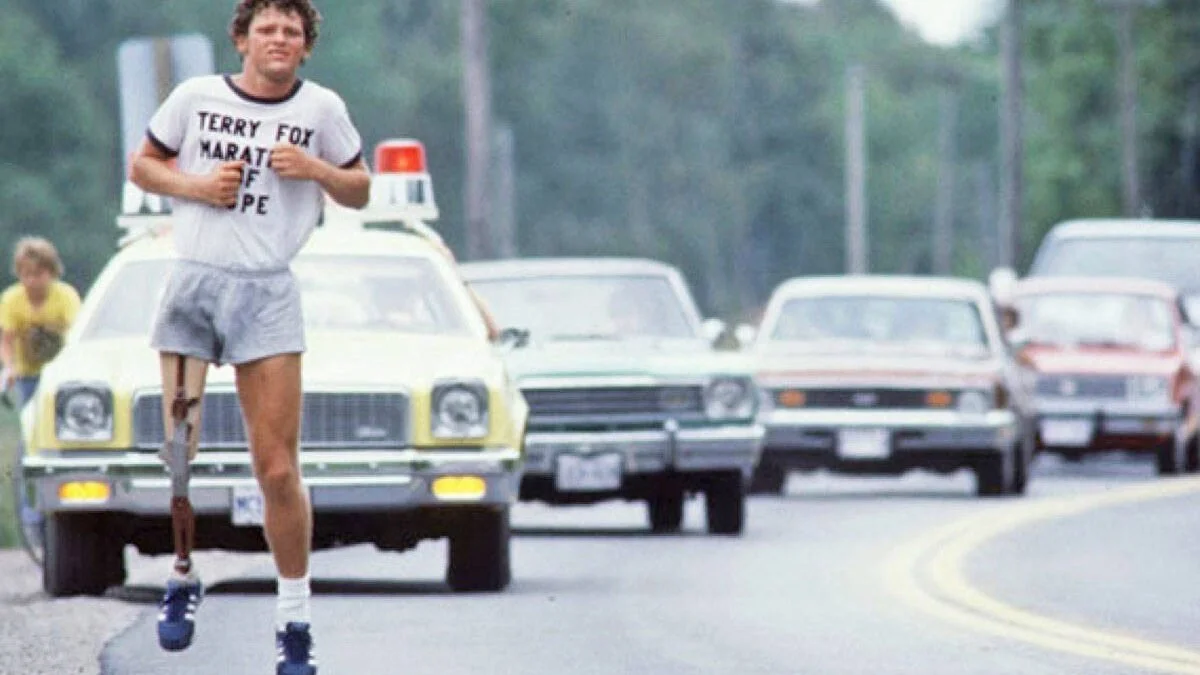The Price of Hope: Terry Fox and the Legacy of a Nation’s New $5 Bill
It is a rare thing in a country’s history when a banknote transcends the transactional and becomes something more—an artifact, a sermon, a demand for something greater. Enter Canada, perched on the precipice of a financial and philosophical revolution: Terry Fox, the one-legged madman who dared to outrun death, will now stare back at us from the new Canadian five-dollar bill.
For decades, Canada’s currency has been adorned with the usual suspects—politicians, monarchs, the heavyweights of governance who stitched the nation together through policy and diplomacy. Stodgy men with furrowed brows and starched collars, managing affairs from comfortable rooms with polished desks and leather chairs. But Terry Fox? A 22-year-old kid with a prosthetic leg, sweating and bleeding through every step of his Marathon of Hope? His inclusion isn’t just a break from tradition; it’s an outright declaration of war against badly outdated notions of what a national hero should be.
Fox was no statesman, no decorated general. He was a university student who, at 18, was handed a death sentence: osteosarcoma, an aggressive form of bone cancer that forced doctors to amputate his right leg 15 centimeters above the knee. He was told to accept it, to bow his head and live out what time he had left in relative comfort. Instead, he strapped on a crude, clunky prosthetic limb and set out to do something that should have been impossible—run across Canada to raise money for cancer research. Not walk, not bike, not drive. Run. A full marathon every single day.
It was lunacy. A reckless, kamikaze mission fueled by the kind of naive, unyielding belief that either makes a man immortal or kills him outright. For 143 days in 1980, Fox pounded the pavement, his awkward, lurching stride becoming the rhythmic heartbeat of the nation. From the rocky shores of Newfoundland to the vast, empty highways of Ontario, he covered 5,373 kilometers before his body finally betrayed him. The cancer had spread to his lungs. He was forced to stop in Thunder Bay, Ontario, still thousands of kilometers from his goal. Less than a year later, he was dead.
But he had already won. By the time he succumbed to the disease, his Marathon of Hope had raised $24.7 million—one dollar for every Canadian at the time. His face, his name, his spirit were burned into the national consciousness. Today, the annual Terry Fox Run spans the globe, having raised over $850 million for cancer research. His impact isn’t measured in speeches or legislative achievements but in the very real, very tangible hope he has provided to generations of cancer patients and their families.
And now, he will be immortalized on the currency that Canadians carry in their wallets, stuff in their pockets, exchange for bread, beer, and the simple business of life. The $5 bill will no longer just be legal tender; it will be a call to action. The government has explicitly stated that Fox’s image is meant to inspire Canadians to donate five dollars to the cause he championed. It is a striking contrast to the old-world philosophy of putting leaders on money as symbols of power and control. Terry Fox was no ruler—he was a defier of fate, a testament to human resilience.
Of course, there are the usual grumblings from traditionalists. Sir Wilfrid Laurier, the prime minister currently occupying the $5 bill, will be bumped to the fifty. Some might lament this as a slight against Canada’s political heritage, but the truth is, Laurier was a leader of his time. Fox is a leader of all time. His struggle, his mission, is timeless—untethered from politics, unshackled from bureaucracy.
Placing him on the $5 bill is not just an honor; it is a redefinition of what Canada chooses to celebrate. Not just the architects of its laws, but the architects of its soul. Not just the leaders who built the nation, but the ones who remind us what it means to be human.
So go ahead. Pull out that crisp new fiver when it arrives. Look Terry in the eye. And then ask yourself: what’s stopping you from doing something impossible?


